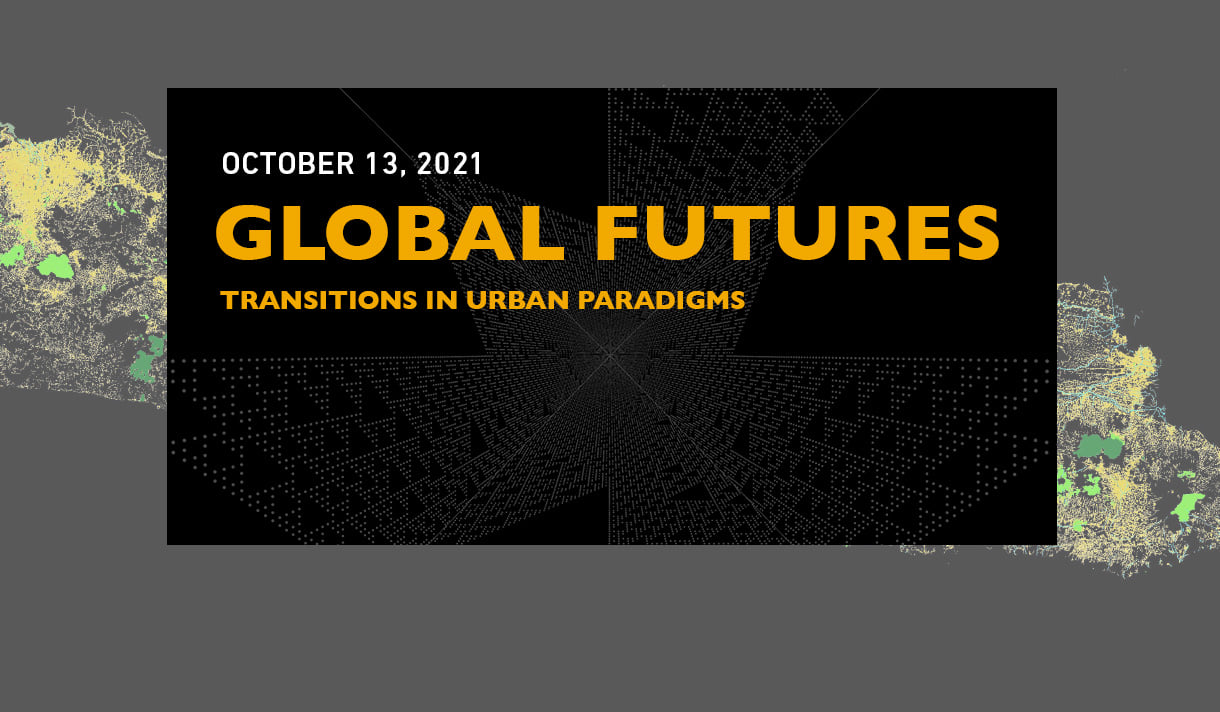Architecture Computational Technologies
Explore design research at the frontiers of architecture through experimentation in computational design, robotic systems applied to fabrication and interactivity, and materiality. For more information please contact ms.act@nyit.edu
GLOBAL FUTURES Lecture 2021 DONALD BATES, DANA CUFF, NEVILLE MARS, DR. MICHAEL WEINSTOCK

GLOBAL FUTURES
TRANSITION IN URBAN PARADIGMS
OCTOBER 13, 2021
Venice Biennale
Virtual Italian Pavilion Curated by Professor Alessandro Melis, NYIT, and Tom Kovak, RMIT, Cities X
Dean Maria Perbellini Creative Director
ORGANIZED AND MODERATED BY:
Tom Verebes, Professor, SoAD, New York Institute of Technology
WELCOME AND INTRODUCTION BY:
Maria R. Perbellini, Dean, SoAD, New York Institute of Technology
PRESENTERS AND PANELISTS:
Donald Bates, LFRAIA; FRIBA, Chair of Architectural Design and Associate Dean (Engagement), Melbourne School of Design; Faculty of Architecture Building and Planning, University of Melbourne, Australia; Founder and Director of Lab Architecture Studio
Dana Cuff, Director, cityLAB – UCLA; Professor of Architecture and Urban Design, UCLA, Los Angeles
Neville Mars, Director, Dynamic City Foundation, Shanghai, China
Dr. Michael Weinstock, RIBA, FRSA, Founding Director, Emergent Technologies and Design, Chair of the Academic Committee, AA School of Architecture, London, UK
This event raises questions concerning the paradigms driving global urban development, within the ongoing transformations triggered by the Covid-19 pandemic, and its potential enduring impact on urbanism. Cities and urban citizens worldwide have faced challenges as a result of lockdowns, restrictions on mobility across transnational networks, and the temporary exodus from cities of some of the privileged classes. This event will unpack issues of global wellbeing of the Anthropocene, the planet’s ecology, regionalism and locality, and the economic fallout of these intertwined crises. For several decades, architectural practice, research and education has championed an evolving model of globalization which has been synchronized with the flows of transnational investment and mobility. The years 2020 and 2021 have demonstrated how the paradigms of progress, growth and connectedness are at once on pause, evidenced by curtailed supply chains and global travel, and also accelerated, through the rapid advancement of information and communication technologies. Including participants based in China, Australia, Europe and the US, this event will interrogate how local and regional forces shape conceptions of culture and design practice in a series of distributed contexts.
More Posts
All PostsMay 31, 2022
MS_ACT INNOVATION KEYNOTE LECTURE Kaicong Wu
May 26, 2022
MS ACT Lecture Shai Yeshayahu
May 16, 2022